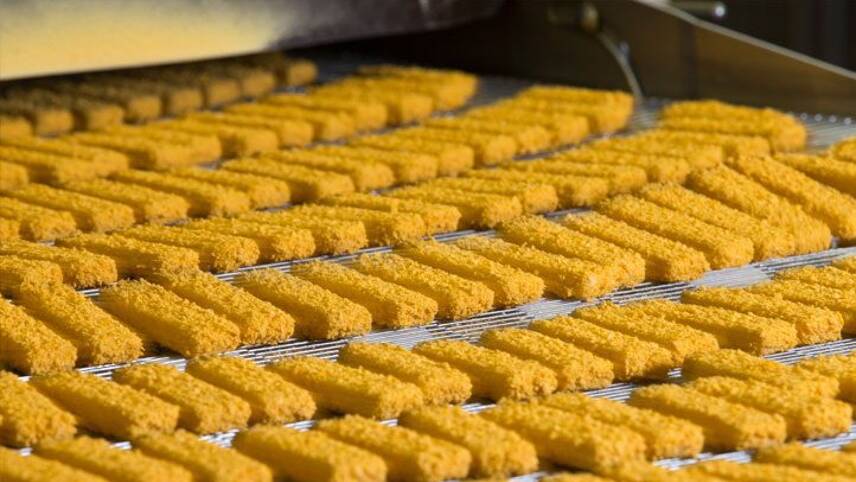Register for free and continue reading
Join our growing army of changemakers and get unlimited access to our premium content

Birds Eye's parent company will ensure that its most carbon-intensive suppliers develop their own science-based targets by 2025
As part of a major sustainability announcement made today (9 September), Nomad has also set its own internal decarbonisation targets, which are consistent with the reductions required to keep global warming to 1.5C – the most ambitious goal of the Paris Agreement.
The targets include significant reductions in Scope 1 (direct) and Scope 2 (power-related) emissions, as well as decreases in Scope 3 (indirect) emissions in areas such as purchased goods, transportation, and distribution. This will amount to a 45% carbon reduction per ton of product produced, from a 2019 baseline.
‘Up to the challenge’
The new targets have been approved by the Science Based Targets initiative (SBTi) and build on the progress already made under Nomad Foods’ sustainability strategy.
The firm’s chief executive Stéfan Descheemaeker said: “As attention focuses on the COP26 climate change conference in November, we must all step up to the challenge of delivering a net-zero economy.
“We are excited that the SBTi has validated our emission reduction targets and, as we commit to the business ambition for 1.5C campaign and the UN’s Race to Zero, we recognise that we cannot succeed on our own.
“We have a diverse supply chain which spans from fisheries to farming and accounts for almost 80% of our greenhouse gas emissions. I’m very proud of the work we are doing to collaborate with suppliers and deliver the wider change needed to help consumers eat sustainably.
“By focusing first on our 2025 milestones, we will almost halve emissions per ton of product and ensure the top 75% of our suppliers by emissions have science-based reduction targets in place.
“This will ensure we reach net-zero well before 2050, as we deliver on our promise of long-term sustainable growth for shareholders.”
Energy and waste
In 2020, Nomad significantly reduced carbon emissions per tonne of finished goods by more than 20% and absolute emissions by nearly 11%. This was despite dramatically increased production volumes because of the Covid-19 pandemic.
Also in 2020, the company became a signatory of the 10x20x30 global initiative to halve food loss and waste in supply chains by 2030.
It has already reduced edible food waste per tonne of finished goods by 31%, compared with a 2015 baseline. It has also prevented surplus edible food from being wasted by donating 1.7 million meals to food banks in 2020.
The company is on track to move to 100% renewable electricity across all factories by October 2021.
This year, it demonstrated further commitment to its sustainability strategy by incorporating KPIs covering sourcing, packaging, and greenhouse gas emissions into its refinancing structure.
Race to Zero
Nomad is the latest in a long line of businesses that have signed up to the UN’s Race To Zero campaign – a global initiative to rally climate leadership from businesses, cities, regions, universities and investors.
Currently, participants collectively cover nearly 25% of global carbon emissions and more than 50% of global GDP.
As of March 2021, almost one in three FTSE100 companies had signed up.
According to the UK’s COP26 unit, FTSE100 signatories to Race to Zero represent a total market capitalisation of £650m. This is before smaller businesses, non-listed firms and businesses covered by industry collaborations, like Water UK’s net-zero by 2030 roadmap, are accounted for.
Instances of businesses aligning their goals with science-based targets have also ramped up of late.
Yesterday (8 September), ‘Big Four’ accounting firm PwC had its climate targets validated by the Science Based Targets Initiative (SBTi), while bed brand Silentnight has committed to develop SBTi-approved targets within 24 months.
Hear from Nomad Foods TODAY at edie’s Nature-Based Solutions & Climate Adaptation online event
Today (Thursday 9 September), sustainability experts from organisations including Unilever, the FAIRR Initiative, Nomad Foods and Grosvenor will discuss how businesses can harness nature-based solutions while adapting to the changing climate to improve resiliency, as part of three back-to-back online events hosted by edie.
Hosted during edie’s special COP26 Focus Week of content and events, this Nature-Based Solutions & Climate Adaptation online event offers up an afternoon of live, interactive webinar presentations and discussions – all dedicated to driving business action around these two critical themes of the upcoming climate talks.
This premium online event effectively combines three edie webinars into a single afternoon, with each webinar session taking a particular format. The first session (45 mins) will be a Q&A-style debate; the second session (one hour) will be a series of quick-fire case studies; and the third session (45 mins) will take a ‘masterclass’ format.
For full information and to register, click here.
edie staff


Please login or Register to leave a comment.